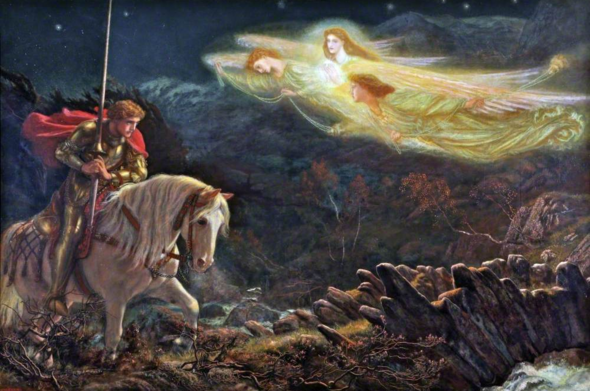"Liberty plucks justice by the nose,
The baby beats the nurse, and quite athwart
Goes all decorum."
- William Shakespeare, "Measure for Measure" (Act 1, Scene 3)
Recent searches
Search options
#bookchatweekly
"Space is big. You just won't believe how vastly, hugely, mind-bogglingly big it is. I mean, you may think it's a long way down the road to the chemist's, but that's just peanuts to space."
- Douglas Adams, "The Hitchhiker’s Guide to the Galaxy"
"Space is big. You just won't believe how vastly, hugely, mind-bogglingly big it is. I mean, you may think it's a long way down the road to the chemist's, but that's just peanuts to space." - Douglas Adams, "The Hitchhiker’s Guide to the Galaxy" #BookWormSat #BookChatWeekly
In Egyptian mythology, after the god Set killed his brother Osiris, he fought Osiris' son Horus for control of Egypt. Eventually, the supreme god Ra decided to give Set 97% of Egypt but let Horus choose his 3% first. Horus chose the fertile Nile Delta, leaving Set with the desert. Hamish Steele
According to the Goetia, Paimon is a king of Hell commanding 200 demonic legions. He roars when summoned, and is accompanied by a retinue of demonic musicians. Paimon teaches all arts and sciences, and the mysteries of earth, air, and water. He also can control minds. Paimon rides a dromedary. Louis Le Breton
The only appearance of a unicorn in a medieval Welsh legend is a surprisingly savage creature that attacks any human it finds and drinks lakes dry, killing all the fish. Peredur (the Welsh Sir Percival) slays the unicorn, but then discovers it's the pet of a fairy lady.
In Arthurian legends, many of King Arthur's knights are so virtuous and devout that God grants them saintly miracles, such as prophetic visions or banishing demons. The most common miracle for these knights is the "laying on of hands" (healing people with a touch). Adam Hughes
The Prose Edda says that the greatest physician and healer of the Norse gods is the goddess Eir (whose name means "protection" or "mercy"). She is apparently a good friend of Frigg, queen of the gods. Other sources describe Eir instead as either a valkyrie or a human. Natasailinic
"Mamma had scarcely turn'd her back,
The thumb was in, alack! Alack!
The door flew open, in he ran,
The great, long, red-legg'd scissor-man."
- Heinrich Hoffmann, "Little Suck-a-Thumb" Heinrich Hoffmann
In Hoffmann's nursery rhymes, children are cruelly punished for their bad habits.
Sir Percival was one of King Arthur's most virtuous and pious knights. He was the "holy fool," whose innocence protected him from the world's sins. Percival was inspired to become a knight as a child when the light gleaming off their armour made him mistake the knights for angels. Howard Pyle
Dagonet the Fool is an eccentric warrior of King Arthur. Depending on the source, he is depicted as either an incompetent coward, a dangerous madman, or King Arthur's official jester - who was knighted for his courage, and who plays tricks on the king's enemies.
Next to prophecy, Merlin's defining magic was shapeshifting. According to legend, he could transform himself into virtually anyone - young or old, man or woman. It was often hard to know if you were dealing with the person you thought or Merlin in disguise. Alan Lee
Despite being one of King Arthur's greatest knights in legend, Sir Tristan was also a trickster and master of disguise. He adopted numerous personas (travelling minstrel, swineherd, jester...) in order to meet with his lover Queen Iseult without her husband knowing. A. L. Grace
In Welsh legends, the warrior Iddawc was so eager to witness war and slaughter that when delivering messages between King Arthur and Mordred, he made them as insulting as possible. This destroyed any chance for peace, and thus Arthur and Mordred killed each other. Gino D’Achille
"He exits, pursued by a bear."
- William Shakespeare, "The Winter's Tale" (Act 3, Scene 3)
"Here at least we shall be free; the Almighty hath not built
Here for his envy, will not drive us hence.
Here we may reign secure, and in my choice
To reign is worth ambition though in Hell:
Better to reign in Hell than serve in Heaven."
- John Milton, "Paradise Lost" Gustave Doré
In Welsh folklore, the Witches of Caer Lloyw are "maiden hags" skilled in both witchcraft and warfare. They teach combat skills to the Arthurian knight Peredur (the Welsh version of Sir Percival). However, when he discovers that the witches had tormented his relatives, Peredur takes revenge. Jérôme Lereculey
"I see Queen Mab hath been with you....
She gallops night by night
Through lovers' brains, and then they dream of love;
O'er courtiers' knees, that dream on court'sies straight,
O'er lawyers' fingers, who straight dream on fees."
- William Shakespeare, "Romeo and Juliet" Warwick Goble
The werewolves of Ossory (a medieval Irish kingdom) are referenced in many Irish, English, and Norse texts. Their sins caused God to transform them into wolves. However, they were still Christian; a priest was once brought to perform last rites for a dying female werewolf.
"They stole little Bridget
For seven years long;
When she came down again,
Her friends were all gone.
They took her lightly back,
Between the night and morrow,
They thought that she was fast asleep,
But she was dead with sorrow.
They have kept her ever since
Deep within the lake,
On a bed of flag-leaves,
Watching till she wake."
- William Allingham, "The Fairies" Florence Mary Anderson






















